I once had a friend who wanted nothing to do with mathematics, I mean he literally and practically didn't like math at all and back in high school, we had math every Monday, double periods.
For hours we would stare at the board watching the math teacher perform wonders and for us on the other side of the board, when given certain questions to solve, we found it quite difficult even if we scaled through.
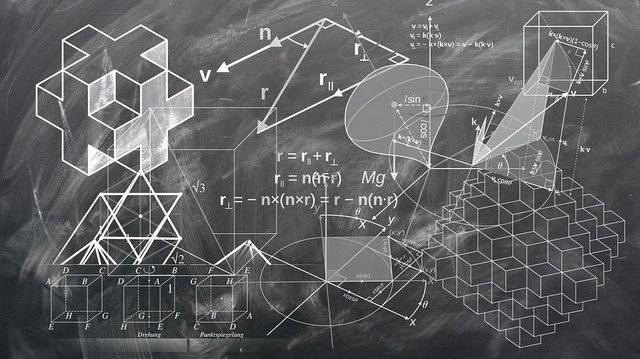
Credit: Pixabay
One particular Monday morning, the math teacher began the class and as the class went on he wrote a math problem on the board and asked everyone to try it. For a while, we attempted the problem, and whenever we got somewhere with the problem, we would have to start solving again, kinda like running in circles.
My friend stood up to make a contribution or so I thought. When given the audience, he asked a very weirdly remarkable and silly question. He said "Sir, Who invented Mathematics and Where did it come from?".
This particular question got me thinking, though I didn’t know at that time where mathematics had come from I knew it came from somewhere and sadly not everyone knows the real origin of mathematics or who first discovered it and even if there was someone who even invented it.
Origin; Early Men
Far back as time itself, Mathematics has been in existence and despite the fact that it has taken a rather new shape, it has always been there one way or another. Since ancient times, maths has played an important role in significant advances in science and technology of the present age, for it is considered to be as old as humanity itself.
Mathematics, according to ancient times were simple counting nevertheless, as the world evolved, math became complex and less easy to comprehend despite the fact that it started with just counting.During the Prehistoric era, The Early Men understood maths to be simple counts, with which they used their fingers for numbering which would suggest the emanation of Abacus. They used these simple countings to measure and study quantities, give an estimate for times and seasons and also deduce some fundamental necessities as at that time. These men used certain objects(some would prefer bones)to interpret numbers and during this period, it wasn’t as complex and evolved as we have it now.
The origin of Mathematics is quite diverse because no one can perfectly say that it emanated from just one specific region which is why it is referred to as an escalating relay of "Abstractions". Seeing as the early men could interact with their surroundings perfectly, they were able to see many things that were in common and could be used to interpret counts.
Not until 3000 BC did math evolve into more intricate levels, where Egyptians introduced the use of certain fundamental terms in calculations like the popular algebra, geometry and arithmetic.
These were used by the Egyptians to file up taxation, calculate monetary transactions, for constructions, buildings and to compute arithmetic data productively. On the other hand, Babylonians were able to use Arithmetic, algebra, and geometry to formulate calendars(dates, months, years) and they were able to apply these things in the field of astronomy and other natural fields to be able to read the stars, understand the weather and take precise records.Although it might come as a bolt from the blue; It was in Babylonian mathematics that elementary addition, subtraction, and division was recorded by archaeologists. Furthermore, they devolved a device called the sexagesimal numeral system which was also used to write the Pythagorean triples in 1800 BC which they used for measuring time and angles and it is still in use till date. In addition to that, they developed a means to understand trade and commerce using elementary arithmetic.
Along the line, ancient texts were discovered, during 2000 BC and it was noted that it related to the Mesopotamians and Egyptians(Babylonians). Texts unfolded in the early centuries, related to ''Pythagorean Triples'', found on a clay tablet in 1800 BC, with records from Plimpton 322.
Subsequently, It was sold to George Arthur Plimpton for $10 in 1922 shortly after it's discovery. I bet everyone knows about Pythagoras and the very famous Pythagorean theorem used in finding angles.
In due course, the Pythagoras theorem became the most widespread Mathematical development even after arithmetic, geometry, and algebra.The Study of mathematics truly began in the 6th century, where Pythagoreans coined the word mathematics from the ancient Greek word μάθημα (mathema) which literally means ''Subject of instruction or discipline''. The Ancient Greeks were able to stretch the borders of Mathematics to reach greater extensions, which entirely refined the subject matters involved in mathematics. Greek Mathematics, helped shape the entire four walls of mathematics into far more comprehensive forms through deductive reasoning and although much input wasn’t made in the case of theoretical mathematics, the Greeks did a remarkable job.
In ancient Rome, Mathematics was utilized for, surveying, building, constructions, bookkeeping. Ancient Romans made use of applied mathematics for all forms of Engineering including architecture and they were efficient in the production of arts and crafts, and also in the creation of solar and lunar calendars.
Furthermore, Prehistoric artifacts that suggest the origin of mathematics in Africa was discovered 20,000 years ago near the Nile river in Congo.Ishaga Bones that had markings in order of three were interpreted to be tallys of the earliest known demonstration of sequences of prime numbers or a six-month lunar calendar. this discovery influenced further development of mathematics in Egypt.
In other parts of the world, like China and other Islamic regions, early contributions also came into play in the way of Maths. Chinese Mathematics introduced the place value system and also negative numbers while, Islamic regions made developments in mathematics in diverse ways too, expanding the horizons of mathematics known to civilization. Over time, Central America, Mexico developed the zero symbol used in Maya numerals until today.
Advancements In Mathematics
In the event of evolution, precisely around the 12th century, Mathematics took a rather remarkable turn when men whose IQs weren’t exactly short of the standard, began deducing more refined and accurate patterns to carry out certain calculations involved in Mathematics. Prior to this, the study of mathematics was limited throughout Europe since they were more interested in subjects like philosophy, logic, literature and all other forms of humanities, they had fallen into the dark age.
However, between the 4th century till the 11th-century, Europe had limited knowledge in the way of geometry, arithmetic and algebra and also music. Only very few people were abbess with mathematical relations and information, and all commerce and trade calculations were done using Roman/Greek numeral systems with the help of Abacus.
Not until the 12th century did the study of Mathematics advance to a better level when some mathematical texts written in Arabic and Greek were translated into Latin which contributed largely to the advancements of mathematics in Europe and all over the World. During this period, deliberate actions and steps were taken in other to further advance the reach of mathematics in general, whether applied or theoretical, it became a deliberate action performed by scientist and scholars of old. Scholars traveled to Spain seeking scientific text in Arabic including the Euclid elements and The Compendious Book on Calculation by Completion and Balancing, translated into Latin by Robert of Chester.
Advanced Mathematics precisely kicked off in the 12th century but evolved as time went on, with giant strides, the Fields of mathematics went on to greater levels, down from the 12th-13th century. In the 14th century, certain improvements were made in like the Oxford calculator created by William Heytesbury. He was able to close some gaps in mathematics and though his invention wasn’t exactly defined, he and some other scholars and mathematicians were able to determine the distance a body covers in unvarying acceleration which is solved in our modern age using Integration.
Scientific Revolution Of Mathematics
Mathematics has been a part of man's life from the Genesis of time and space, Its nature, origin, and revolution dates back a lifetime ago, a lifetime even before the time of our fathers. As the saying goes ''The only constant thing is change'', and with no doubt this phrase took its toll on the General Perspective of Mathematics, starting with what I call he Uprising.
From the 16th to the 17th century began a revolution in the world of science which made a serious impact on our modern-day subjects. During this period, the world experience a stream of ideas from across the world and Europe was at the center of it all. The scientist Galileo began the study of planets and the general field of astronomy when he observed the moon's interaction with Jupiter using a toy-based telescope from Holland. Galileo was considered to be one of the founding fathers of astronomy but he did contribute immensely to the growth of Modern mathematics and physics.
From then on, other scientist embarked on the same journey as their predecessors to elevate the reach of mathematics. Kepler, a scientist under the lordship of Tycho Brahe began findings relating to logarithms and his calculations were made simpler by John Napier. Kepler further formulated the mathematical law of planetary motion.
Over the years, Mathematics evolved and like I said it gained tremendous height. Scientist upon Scientist invested time and effort into it to get it to be better. With the like of Sir Isaac Newton, who discovered the laws of physics and motion, and also explained Kepler's law of planetary motion. He further connected these two to form what we know in Engineering to be Calculus
In addition to all of this was the discovery of Probability Theory, by Blaise Pascal and Pierre de Fermat. These men started the work on Probability and combinatorics during a gambling game that they both participated in. In an attempt to test run the newly discovered probability theory, he decided to argue for religious life on the grounds that if the if the probability of success was small, the rewards were infinite.
In the 18th century, Leonhard Euler, a Swiss mathematician, and scientist made his contributions to mathematics through the formulations of the Graph theory, infinitesimal calculus, and for those of us who love music, Euler also contributed widely in music theory. Mathematics In the late 18th century and early 19th century became abstract, When German scientist and mathematician Gauss did some groundwork on complex variables, delivering proofs of the fundamental theorem of algebra and law of quadratic reciprocity.
His findings led to the Gauss elimination method in algebra and also he was able to put forth a coefficient called Gaussians coefficient in the binomial expansion. In addition to that, his theory on Logarithms introduced addition and subtractions of log values.
Just before the 20th century when mathematics became a lead profession all over the world, Its limits were tested by Frenchmen who proved that there are no algebraic methods used in solving polynomial terms with degree greater than four. The 19th century experienced a whole lot of Abstractions in mathematical areas like algebra and vector space, then Augustin-Louis Cauchy, Bernhard Riemann, and Karl Weierstrass reformulated calculus in a more rigorous fashion.
Mathematics, expanded widely in certain areas of the world, so much that it became a thing every year for PhDs in mathematics were released almost too often. 20th century, produced one of the greatest Mathematician and scientist I have ever known ''Albert Einstein''.
Einstein developed the mass-equivalence formula E = mc2, which is most famous, all around the fields involved with math and physics. He made discoveries relating to Differential geometry when he used it in general relativity. Although Einstein was commended for his remarkable contributions in physics, he did make certain contributions in the fields of mathematics. He contributed immensely to the l calculus of today, putting forward several equations of which ten are called Einstein Field Equations.
In spite of these wide range of information, advancements and a walk down history lane, the efforts made by scientist, scholars of old, mathematicians of the 16th-20th century, Babylonians, Egyptians, Chinese, Mayas, Africans, Europeans, Germans and Russians and other Islamic regions of the world, the question still remains; ''Who invented Mathematics?''
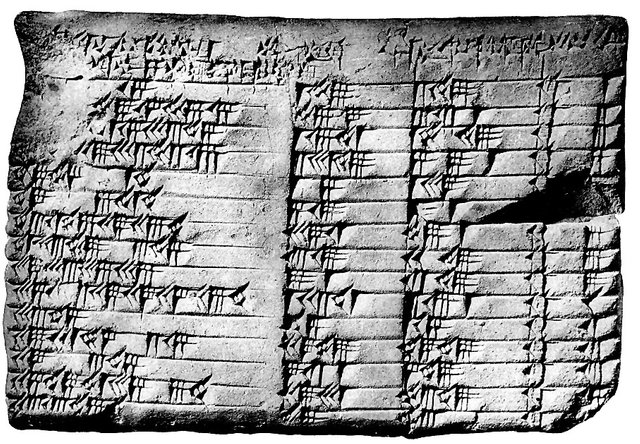
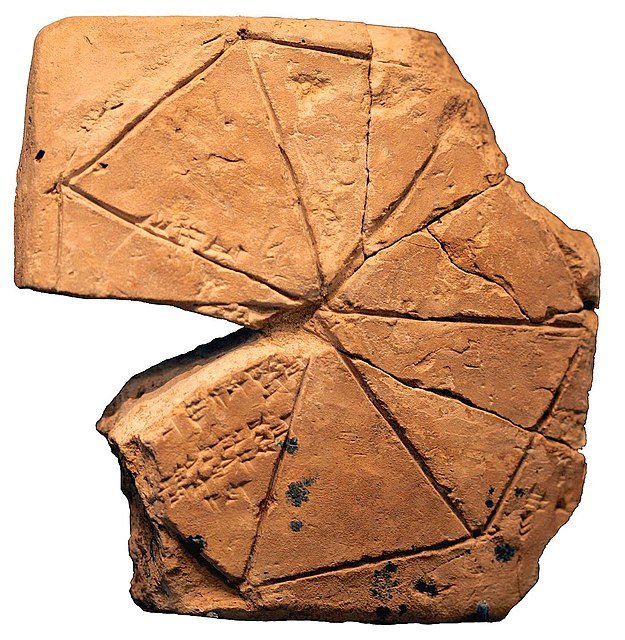
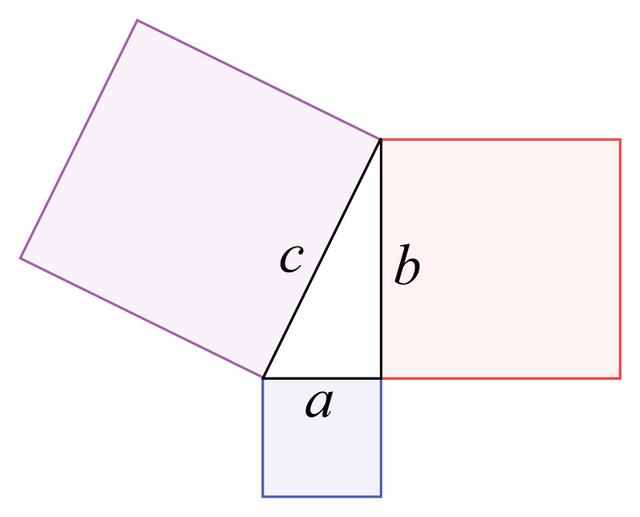
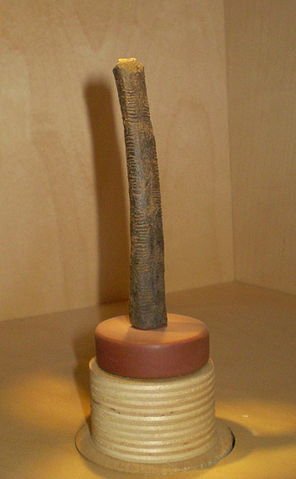
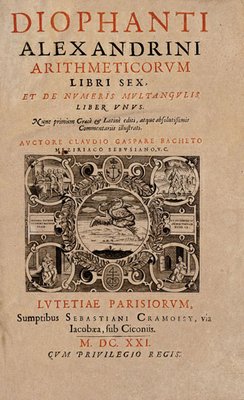
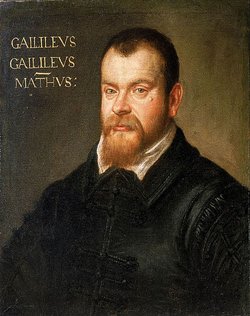
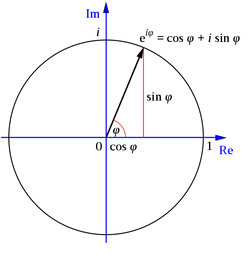
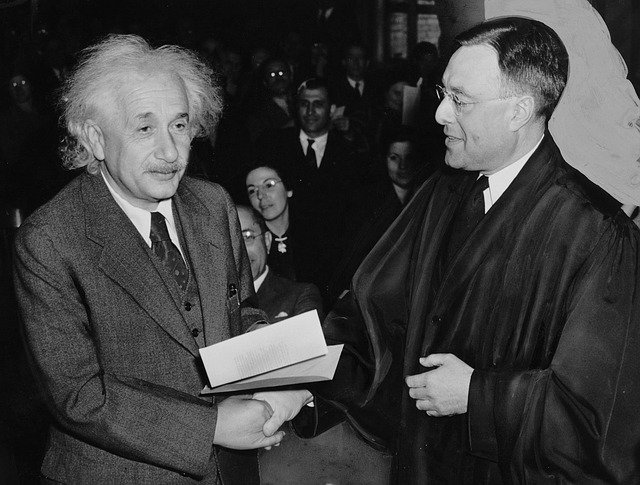
Don't forget about the Simpsons' contributions to math :)
Downvoting a post can decrease pending rewards and make it less visible. Common reasons:
Submit
I certainly won't. The simpsons' contributions to math is one of the reasons why the Tv show never ceases to amuse its viewers @ptsouth97. And you might be surprised that most people don't know that the Simpsons made their own contributions towards Mathematics genera.
Downvoting a post can decrease pending rewards and make it less visible. Common reasons:
Submit